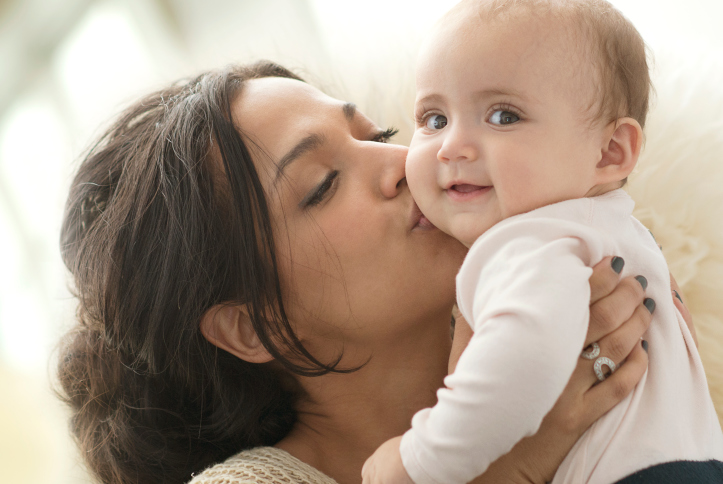Is there a ‘right time’ to start a family?
Ilona Boniwell asks when is the right time to have a child and will having one make you happy? It might depend on how you define happiness and create meaning in your life

Psychologists have long said that children do not make you happier. Particularly when they are under five, or teenagers. Well, there are some variations – the happiness levels of married and single mothers go up temporarily for a few months straight after birth, while for co-habiting new mothers, the impact is more commonly negative. For fathers, on the other hand, it’s usually bad news regardless of their marital status. This is hardly surprising, considering that sex and attention from their partner become inversely proportional to the levels of tiredness.
What’s interesting is that research shows we consistently ignore or minimise the majority of useful facts concerning the negative impact of children on finances, marital health and overall emotional wellbeing, preferring to idealise the picture instead. So given all that I know, why on earth did I choose to have a baby when my new husband and I already had four teenagers between us from previous marriages? My first two pregnancies happened easily (not even by accident) at the early ages of 20 and 22. So it was not until 35 that I first discovered the term and associated abbreviation of ‘trying to conceive’ (TTC). I never imagined the torture of monthly counting – first the ovulation days, then the cycle days, hoping that the period wouldn’t come – once, twice, the count going on and on, not quite believing the miracle when it finally happened…
And what a difference between dancing Christmas night away right before going into labour early on Boxing Day morning the first time around, and having to spend six weeks in bed in order to keep the placenta in place the second time round. It’s all change too when you discover that your older children have all their usual demands the very first day you get out of hospital! And now that you’re older yourself that you don’t fall asleep after you get up to breastfeed during the night – and neither does your husband, despite the daily exhaustion of running a 30-strong company and fighting the economic crisis. What can I say? Having a baby at (nearly) 40 and (nearly) 50 is not easy.
On the upside…
Luckily, older parenthood does come with some perks. First of all, money – we are far from rich, and the pay cheque for childcare is a black hole in the family budget, but this time round, we don’t struggle as much to write the cheque. We can hire a babysitter for a night and go out for a romantic meal. We can buy quality baby food instead of slaving for hours in the kitchen armed with the mixer. There are no bedtime fits, because having paid a high price first time around, I learnt the trick – a little kiss on the cheek, lie him down, turn around, exit the room, close the door and don’t worry about any noises (excluding difficulties with breathing) coming from the bedroom. Our bedtime routine now takes a maximum of five minutes, including changing into pyjamas, all completely in the ‘French children don’t throw food’ style.
And, to be honest, you are nowhere near as anxious as a new, inexperienced mother – you can even send your own mother away with ease, as when necessary your own experience is more recent and plentiful enough. I know I haven’t quite answered my own dilemma – why have a baby knowing it won’t make you happy? Well, it depends on what we mean by happiness. True, the hedonic enjoyment of life goes down substantially and doesn’t recover until children leave home (and my husband will be in his seventies then.) Long live the British common-sense wisdom insisting children must fly the nest during university years!
However, research talks of two types of happiness – hedonic, which is concerned with homeostasis and pleasure, and eudaimonic, which is concerned with meaning and fulfilment. So, while the pleasure plummets in the permanent run for the satisfaction of everybody else’s needs rather than your own, the happiness-as-meaning factor does actually improve after having children. I find almost every moment with my baby Theodore meaningful – helping him to put three words together into a sentence; ignoring a temper tantrum, knowing that contrary to appearance it would undoubtedly benefit his own wellbeing; or happily exclaiming ‘cow!’ for the 3,021st time, confirming again and again that it actually does give milk.
So the decision to have children – be it the first or the fifth – is certainly not an easy one. Do you listen to your heart, or your friends, or pore over the scientific research statistics? Perhaps the best decision at all is to use all of your life experience to help you evaluate what decision is the right one for you as a family.
More information:
- Read Psychologies' article Do Children Make Us Happy?
- Visit the BBC's programme page The Happiness Formula
Photo: Victoria Birkinshaw








